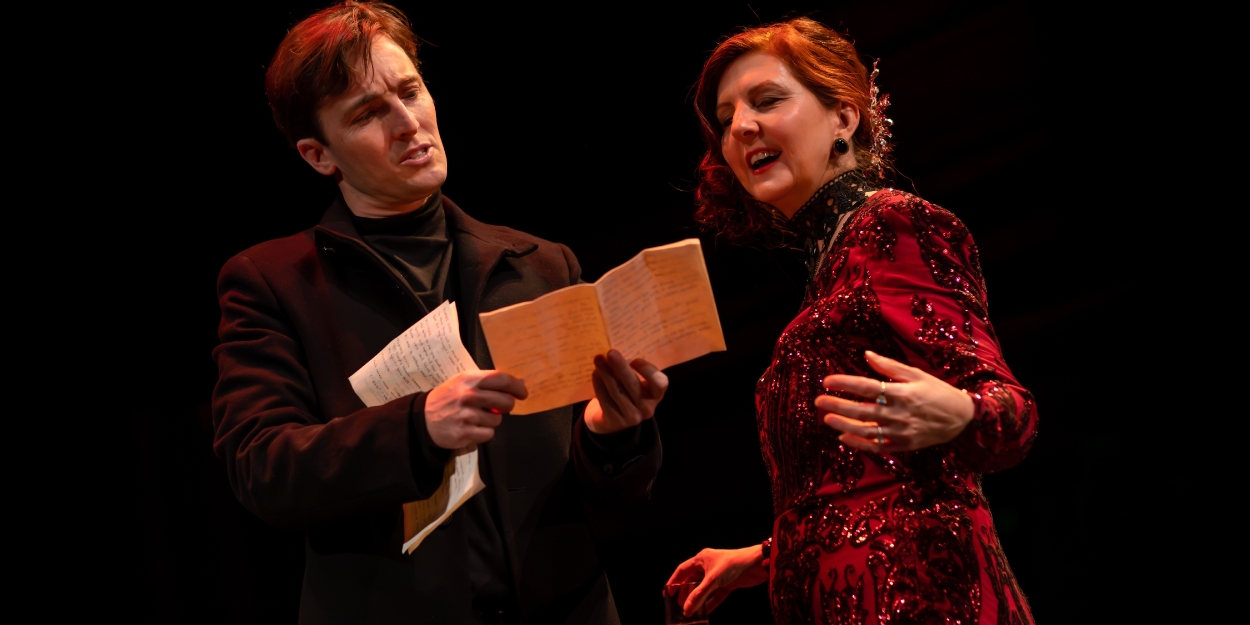
In an ancient tale that Shakespeare refashioned into his 1600-01 play Hamlet, a king's brother murders the king and marries his queen, and the displaced heir, son of the murdered king and that king's perhaps faithless wife, decides to take revenge on the usurper. Shakespeare's take on the tale has served for four centuries as the definitive recasting of it. Chesapeake Shakespeare Company is giving us a fresh and intriguing take upon that recasting.
There is no escaping the need for fresh takes. Hamlet may be a great play, but it's also a mess. Its eponymous hero, Hamlet, the Prince of Denmark, is likewise a mess. In fact, the second mess gives rise to the first. Try as we may, we cannot make sense of everything Hamlet says and does, and that radical inconsistency and chaos is a primary driver of the inconsistency and chaos of the play. It doesn't help that the text is notoriously hard to reconstruct, but that is not the major source of the problem; Hamlet himself is.
Presented with the demand of a phantasm who may be his father's ghost to avenge the father's murder, Hamlet spends the major part of the play sliding in and out of social inappropriateness and psychotic babble-talk as he struggles to confirm the ghost's bona fides (is it really his father?) and its veracity (was the father really murdered? and by Hamlet's uncle Claudius?) - and as he struggles to deal with the various dilemmas arising from the answers to those questions. Assassinate the uncle in turn? Kill himself instead? And what about the related decision how to treat his mother, who has married the uncle?
And there are more dilemmas: how to treat old friends Rosencrantz and Guildenstern, whose agendas are decidedly mixed, and Ophelia, the young woman he was first wooing, later on insulting, and who soon experiences her own psychotic break, far more clearly authentic than Hamlet's?
Obviously, you can play this material in all sorts of ways, none of them definitely right or wrong. As Ian Gallanar, Founding Artistic Director of the Chesapeake Shakespeare Company, now presenting a new mounting of Hamlet, remarks in program notes, "Your Hamlet is your Hamlet. It is no one else's." Perhaps it might better be said on this occasion that this Hamlet is director Eleanor Holdridge's; and let's note that Holdridge is a distinguished director and chair of the Drama Department at Catholic University of America, one of the great theater programs. She has a definite approach in mind.
And what is that approach? Well, it abbreviates the play, for one thing. Notoriously the longest of Shakespeare's thirty-odd plays, Hamlet is usually presented with cuts. Uncut, it can run three and a quarter hours. This version takes two hours and a half, with an intermission. In other words, about an hour has been excised. Lots of things have gone with it, like the entire first scene - and it's hard to think of other plays that can remain comprehensible without their first scene. (Here that actually works reasonably well, as Shakespeare gives us most of the material supplied there all over again in Act I, Scene 4.)
Other excisions involve a number of the characters, most obviously the crew of actors accompanying the Player King (David Yezzi, who also embodies the aforementioned ghost). Obviously, since the other performers in the Player King's troupe enact the performance of the story that will "catch the conscience of the king," which is the paramount focal moment in Hamlet, that hole in the presentation (no characters to perform it) must be plugged somehow. And Holdridge tenders an ingenious way to do it; she has contrived for Claudius (Marcus Kyd) and Gertrude (Lesley Malin) to play these characters themselves, as participants in a session of amateur theatricals under the Player King's direction, doing the very things they did "for real" in connection with Hamlet's father's death. This makes the psychological tension even stronger as the scene proceeds to its breaking point.
The always-confusing political/military subplot involving the Danish king Claudius, the Norwegian king, the latter's nephew (here niece - a reconception of the role gone too far, in my book) Fortinbras, and the "Polacks," is made more confusing by the removal of a minor character, a Captain, whose function is to explain things in a way that Horatio (Brendan Edward Kennedy), who says the Captain's lines, cannot plausibly do. We would better dispense with Fortinbras along with various other characters, except that we need Fortinbras to end the play, as the last man (well, woman here) standing, so there the character must be set up. But using Horatio to frame Fortinbras' place in the picture is simply lame. We need the Captain.
On the other hand, the reconception of Rosencrantz and Guildenstern as true college chums, one of them female, is simply brilliant. Briana Manente as Guildenstern radiates a slightly manic best-female-buddy cheer from her first moment on the stage. One can easily imagine shared good times and fellowship before Hamlet returned to and became engulfed by the gloom and doom of murderous Denmark. The more saturnine Rosencrantz (Dagan Brown) is thus given something to set himself apart from. The two are no longer Frick and Frack, Tweedledum and Tweedledee. Tom Stoppard saw that these two were begging to break out of the bracket of functional characters nearly without characterization; Guildenstern's antic personality is a different way to escape that mold. Of course, if we know the play, we know that somehow Danish realpolitik has totally and tragically all ruined these friendships before the pair ever set foot on the stage, but we can trust that they were once genuine.
And so we turn to the indispensable characters: Hamlet (Vince Eisenson), Gertrude, Claudius, Polonius (DeJeanette Horne), Laertes (JC Payne) and Ophelia (Elana Michelle). Here questions of what and who was cut become less pressing. Cuts usually happen at the margins; at the heart of the show, the impact of acting and directing matters more than how an editor has wielded the scissors.
Eisenson's Hamlet is naturally the key, and one can see why he was central to the conception of this production since before the pandemic that delayed it. Intense, athletic, appealing, and clearly deeply versed in the meaning and function of every line, Eisenson dominates the stage throughout, whether he is cutting a caper or a hole in an adversary. And he handles the frequent incoherence of his lines as well as any actor can. He may not descend to the depths of anguish as fully as some other Hamlets I've seen have done, but this Hamlet leans on a keenly intellectual approach to the existential dilemmas that confront him, even when he is either experiencing or feigning mania. We have no trouble, when we reach the end of his arc, seeing how he got where he is.
The lines as written never really betray whether Gertrude is aware that Claudius murdered her first husband. But Gertrude takes ownership of all other morally salient aspects of her situation. She acknowledges privately to Claudius that their marriage was "o'er hasty." At certain times she comes across as wielding authority equal to Claudius's. But with that, of course, comes equal guilty feelings. And she seems fundamentally in thrall to Claudius. The one clearly independent action she takes is the one at the end that costs her her life, drinking from a poisoned cup against advice. This demonstrates, were demonstration needed, that in all of this, she's in over her head. And Malin gives us a solid workmanlike portrait of a character with terminally bad judgment.
I loved Marcus Kyd's Claudius. He is a slick, cynical empty suit, with just enough of a human conscience left to pray briefly for forgiveness for his little acts of usurpation and fratricide. But, to mangle a phrase from the play, slickness is all. His momentary human contrition is really an anomaly. Most of the time, he manipulates, dissimulates, and improvises, never a hair out of place. His persona no doubt owes much to any number of contemporary politicians, men and women without cores, without integrity, without strategic vision, but with great surface appeal who can muster a spurious gravitas upon demand.
The Polonius family are not quite as clearly drawn as the royal trio. It's never entirely clear (and maybe wasn't to Shakespeare) whether royal advisor Polonius has been trying to engineer a marriage between his daughter and Hamlet or trying to derail it. But of course Polonius is a man of self-canceling contradictions anyhow. In his famous speech of advice to Laertes upon his son's departure for France, his counsel is so nearly balanced as to be impossible to apply, and hence useless. Uselessness is his trademark. (Hiding behind the arras while the combustible Hamlet is conversing with Gertrude is supremely un-useful, as Polonius will learn to his cost.) Holdridge could have played up Polonius's foolery a little, if you ask me, but perhaps that would have been gilding the lily.
And his children are little wiser. Not that they have as much agency as their father. Neither really stands a chance; their lives are both driven off course by the shock of Hamlet's killing of Polonius, Ophelia into madness, Laertes into bloodlust. As Ophelia in her madness, Elana Michelle certainly produces heartrending pathos, and JC Payne as Laertes, within the constraints of an underwritten part, does what he can.
Shakespeare has a great trick up his sleeve for the ending, if it's done properly: a fencing match that works out to be a battle to the death - of everyone. This one, contrived by fight choreographer Kristen Pilgrim, is awe-inspiring, a little frightening (if like me you were seated at stage-side), and cathartic. Whatever confusion the characters or the audience might feel coming into that combat, for a couple of minutes none of that matters; the brutal clarity of the foils drives it all out. And by the time it's all over, everyone is either dying or dead, and plotlines are resolving everywhere you look. It's great theater.
Just as this production is minimalist with respect to the length of the script and the size of the dramatis personae, it is similarly minimalist as to the set (by Misha Kachman): really just a gallery with an upper story connected to the stairs by a spiral staircase, and curtains covering the rear. And truly, nothing else is necessary, though the proscenium of the upper level contains a sort of luminous cloud that sometimes produces portentous changes of color or brightness, accompanied by the ominous sound track supplied by sound designer Scott Killian and music director Grace Srivnivasan. On the other hand, the costumes (by Gail Beach) are oft-times sumptuous, especially the variety of scarlet dresses that deck out Gertrude (see, e.g. the shot above, of Hamlet and Gertrude scrutinizing the script of The Mousetrap, the play-within-the-play), the touches of formal wear that sometimes appear on the men, and the antique fustian of The Actor's outfit, are the opposite of minimal, and the contrast with the sets, etc. makes a statement of sorts.
I think the (mostly) prevailing minimalism and starkness is intended to be clarifying; we are meant to be focused on the hearts of the various intertwined stories Shakespeare presents, and perhaps less distracted by other things going on at the very large periphery the playwright has laid out. Whatever the purpose, we find ourselves deeply drawn in, so that by the time all the bodies bestrew the stage at the end, the horror and the catharsis of it all has not only engulfed us - but thrilled us as well.
As the 20th anniversary season of Chesapeake Shakespeare Company draws near to a close with this production, the company appears to have hit a new level of sustained professionalism and polish - and just in time, as the area says goodbye to REP Stage and to Single Carrot, two of the five professional companies formerly serving this area. It was good to see a goodly-sized audience appreciating this show. This thrilling Hamlet is the cherry on the top of the season.
Hamlet, by William Shakespeare, directed by Eleanor Holdridge, presented through May 21 by Chesapeake Shakespeare Company, at 7 South Calvert Street, Baltimore, MD 21202. Tickets $23-$69, at 410-244-8570 or www.chesapeakeshakespeare.com. Violence, homicide, insanity.
Production photo by Kiirstn Pagan.
Videos
![#repshow# in #getregions.name[i]#](https://cloudimages.broadwayworld.com/regionalshows/nd4280371F-053F-4761-8F46AE0D42B9D647.jpg) |
The Rocky Horror Show - Pride Edition! Iron Crow Theatre (6/02-6/17) |
|
![#repshow# in #getregions.name[i]#](https://cloudimages.broadwayworld.com/regionalshows/nd1D67176F-2409-4634-8F18B12C88984D58.jpg) |
The Liar Classic Theatre of Maryland (5/16-8/29) |
|
![#repshow# in #getregions.name[i]#](https://cloudimages.broadwayworld.com/regionalshows/nd2F048BB0-BE94-460A-979687B19F9B6FCF.jpg) |
Jospeh and the Amazing Technicolor Dreamcoat Riverside Center for the Performing Arts (5/17-7/09) |
|
![#repshow# in #getregions.name[i]#](https://cloudimages.broadwayworld.com/regionalshows/nd095C7A72-E6E6-4D28-A33E12CCA5EB8C34.jpg) |
The Holiday Channel Christmas Movie Wonderthon The Cumberland Theatre (12/07-12/17) |
|
![#repshow# in #getregions.name[i]#](https://cloudimages.broadwayworld.com/regionalshows/nd050E05E1-E6D3-4923-BB8CB0D039EC41FA.jpg) |
A Few Good Men The Cumberland Theatre (9/07-9/17) |
|
![#repshow# in #getregions.name[i]#](https://cloudimages.broadwayworld.com/regionalshows/ndF6ECDDDC-4532-4BC1-AAF3041DD5064BD4.jpg) |
Freaky Friday Street Lamp Productions (6/08-6/11) |
|
![#repshow# in #getregions.name[i]#](https://cloudimages.broadwayworld.com/regionalshows/nd7689ADBC-CC0C-432E-A80DB59145B8F1C3.jpg) |
One Flew Over the Cuckoo's Nest Vagabond Players (5/19-6/11) |
|
![#repshow# in #getregions.name[i]#](https://cloudimages.broadwayworld.com/regionalshows/nd3622F639-4EAF-491B-9D853A93E3443A6C.jpg) |
The Dinner Detective Comedy Mystery Dinner Show The Dinner Detective Baltimore (6/03-6/03) |
|
![#repshow# in #getregions.name[i]#](https://cloudimages.broadwayworld.com/regionalshows/nd63955784-B659-4D06-A13FB0726FDC664D.jpg) |
Evil Dead: The Musical The Cumberland Theatre (10/12-10/29) |
|
![#repshow# in #getregions.name[i]#](https://cloudimages.broadwayworld.com/regionalshows/nd751E29DA-49BE-45B9-9CE4888BF2F965E7.jpg) |
Bach in Baltimore presents Handel Dettingen Te Deum & Mozart “Jupiter” Symphony First Evangelical Lutheran Church (6/04-6/04) |
|
| VIEW ALL SHOWS ADD A SHOW | ||
Recommended For You










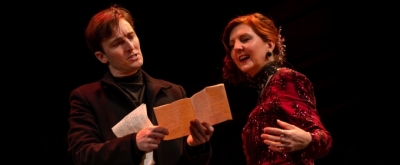
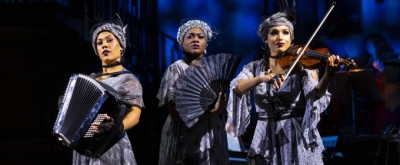
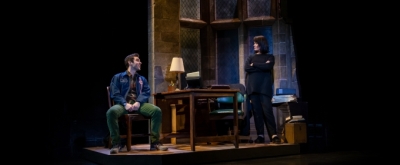

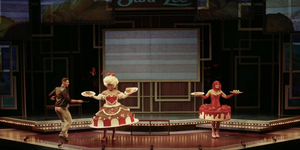 Payton, Diaz & Vincent to Lead THE WORLD GOES 'ROUND at Olney Theatre Center
Payton, Diaz & Vincent to Lead THE WORLD GOES 'ROUND at Olney Theatre Center


